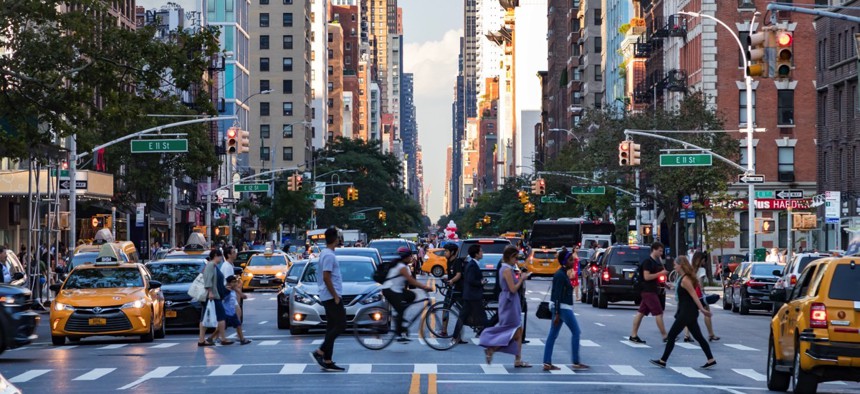‘Public Charge’ Rule Would Present Challenges for Cities

New York City

Connecting state and local government leaders
Municipal governments’ top priorities are providing for the health and welfare of their residents, and penalizing immigrants seeking public services threatens that, said New York City’s Immigrant Affairs commissioner.
WASHINGTON — The Trump administration’s proposal to make it more difficult for immigrants to become permanent residents if they’ve used government programs poses problems for cities like New York City, a key city official said.
While narrower than anticipated when the idea was first floated, the proposed change to the so-called “public charge” rule by the U.S. Citizenship and Immigration Service would still expand the current test for determining whether a potential citizen might become a burden on the federal government.
Previously a person was deemed a public charge if they were primarily dependent on government assistance, but now the feds will look back three years at use of the Supplemental Nutrition Assistance Program, or food stamps, Medicaid use or Medicare Part D prescription drug benefits by seniors, and Section 8 housing vouchers or rental assistance. All of these will be treated as marks against a person’s application for a visa or green card, as will their health, age, education and income. Obtaining a green card, or becoming a permanent resident, is generally a key step before applying to become a citizen.
“You want people to access benefits like medical care and housing, where they’re eligible for them,” said Bitta Mostofi, commissioner of the New York City Mayor’s Office of Immigrant Affairs, during the Georgetown Law Immigration Law and Policy Conference in D.C. “You absolutely don’t want to see a massive chilling effect of people choosing to unilaterally withdraw from benefits or having their children withdraw from benefits.”
That’s exactly what happened after welfare reform in 1996, when public charge was expanded and former New York City Mayor Rudy Giuliani—now one of President Trump’s attorneys—sued the federal government over the changes.
Immigrants collectively contributed $195 billion to New York City’s gross domestic product last year, Mostofi said, in addition to owning half of small businesses in the city. They also use federal benefits at the same rate as native-born citizens, while second-generation Americans contribute more to the economy than native-born citizens, she added.
Conservative activist group Judicial Watch argues the harsher public charge rule is the result of immigration law going unreformed for too long. Congress hasn’t acted, leading to large populations “living in open defiance” of immigration law, said James Peterson, an attorney for the group.
“A lot of people here see their will is not reflected in what’s going on,” Peterson said. “It leads to Donald Trump being elected, if you will.”
New York City government’s focus is on “maintaining the trust between city government and immigrant communities,” Mostofi said, which becomes difficult if you start dividing the population between citizens and noncitizens before providing services.
The 455-page public charge rule has yet to be published on the Federal Register, and once it is there will be a 60-day comment period before it takes effect. City governments are relieved to know it won’t be applied retroactively, Mostofi said, but enforcement plans remain vague—and immigrants continue to withdraw from benefits in the meantime.
“The solution we heard from the director [of U.S. Citizenship and Immigration Services] was that people should really look at those 455 pages to know whether or not they will be impacted by the public charge rule,” Mostofi said.
Dave Nyczepir is a News Editor at Government Executive’s Route Fifty and is based in Washington, D.C.

NEXT STORY: A Setback for Trump's Plan to Slash Public Lands





